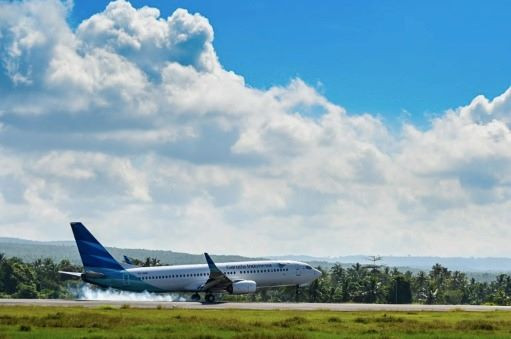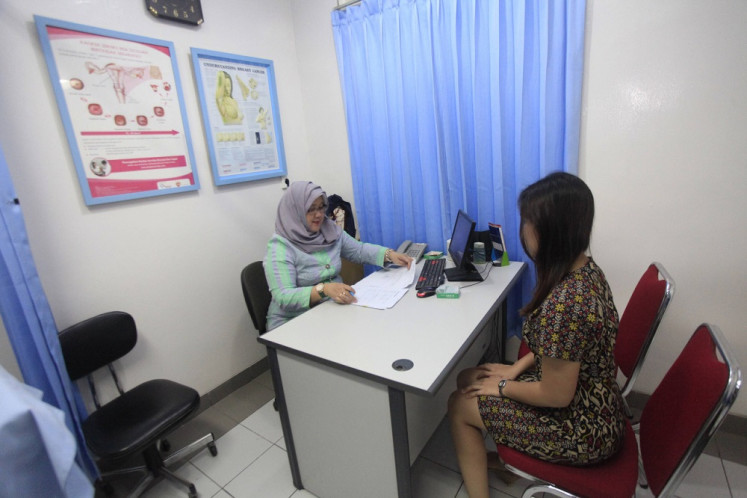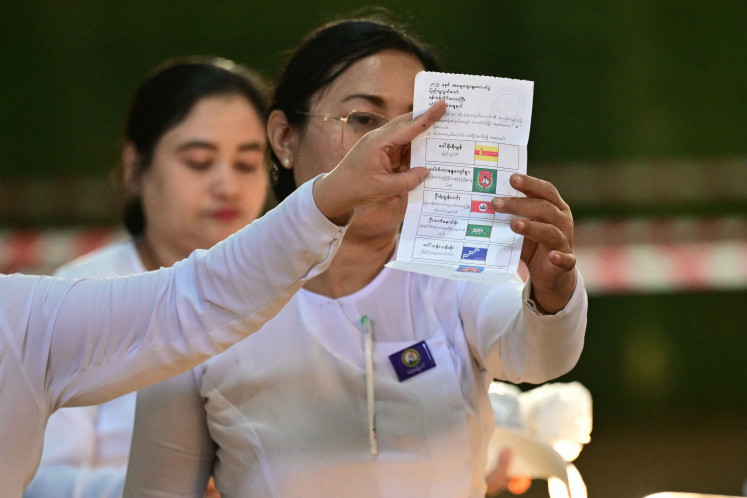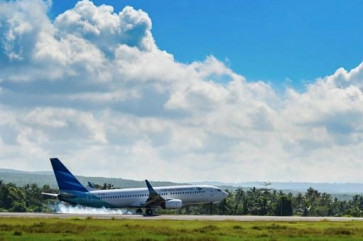Popular Reads
Top Results
Can't find what you're looking for?
View all search resultsPopular Reads
Top Results
Can't find what you're looking for?
View all search resultsIndonesia can become a major SAF producer
Indonesia should increase its SAF production capacity and capabilities to anticipate a surge in demand, including by initiating collaboration with foreign firms with expertise in the relevant technologies.
Change text size
Gift Premium Articles
to Anyone
 Soft landing: An airplane of national carrier Garuda Indonesia lands on Feb. 21, 2024 on a runway at Sultan Iskandar Muda International Airport in Blang Bintang, in Banda Aceh, Aceh. Garuda and Pertamina have successfully tested Bioavtur J2.4 sustainable aviation fuel for commercial flight. (AFP/Chaideer Mahyuddin)
Soft landing: An airplane of national carrier Garuda Indonesia lands on Feb. 21, 2024 on a runway at Sultan Iskandar Muda International Airport in Blang Bintang, in Banda Aceh, Aceh. Garuda and Pertamina have successfully tested Bioavtur J2.4 sustainable aviation fuel for commercial flight. (AFP/Chaideer Mahyuddin)
T
he aviation sector emitted over 800 million tonnes of carbon dioxide (CO2) in 2022, accounting for approximately 2 percent of total global emissions. While this percentage might seem relatively small, reducing emissions from this sector presents significant challenges.
Electrifying air transport is not as simple as converting a bus from diesel to electric due to the high energy requirements of aircraft. Similarly, transitioning to alternative fuel like hydrogen poses both technical and financial hurdles.
Indonesia must promptly devise a plan to gradually curb aviation emissions. In 2019, it was among the seven countries with the highest emissions from domestic aviation, totaling over 8 million tonnes of CO2.
Indonesia has the potential to address this issue by boosting the production of sustainable aviation fuel (SAF), which can reduce greenhouse gas (GHG) emissions from the aviation sector by up to 80 percent compared to fossil jet fuel.
Indonesia is well-positioned to become a significant global producer of SAF. Generally, SAF is derived from nonfossil resources that meet sustainability criteria, such as used cooking oil, agricultural residue and even carbon dioxide from industrial gas effluents or the atmosphere.
With substantial bioenergy potential of an estimated 3.8 exajoule (EJ), Indonesia could theoretically produce more than 200 million barrels of SAF. As such, the country has the potential to not only meet domestic demand but also export its SAF to Asia-Pacific countries.
Progress is already underway: Pertamina International Refinery (KPI) successfully produced SAF at its Cilacap refinery in Central Java from palm oil derivatives, named Bioavtur J2.4 for its composition of 2.4 percent palm oil derivatives blended with fossil jet fuel. The first stage of Bioavtur J2.4 production began in 2021 with a capacity of 9,000 barrels per day (bpd).


















